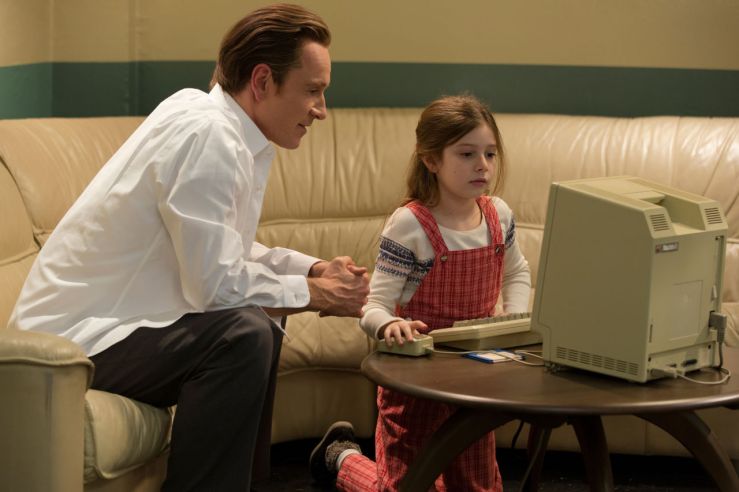More and more, I believe that to be fully appreciated, each film needs to be seen twice. In this column, I hope to revisit some of the films I have only seen once and have been anticipating seeing for a second time. There’s a special analytical eye that opens to a film the second time, when spoilers don’t matter and the beats of the plot are at least somewhat familiar.
“I’m poorly made.”
Aaron Sorkin is an inveterate writer, and his focal points are clear: stories of wise, arrogant men in great, volatile situations, who most likely have a deep psychological trauma associated with their father figures. Some of his screenplays and television series remain part of the quintessential American artworks of the century so-far. (I am here thinking of The West Wing and The Social Network.) His dialogue is often cited as musical in nature, based in large part on his rhythmic verbiage and repetitious nature. Even a casual fan of Sorkin’s can begin to notice his stylistic traits: the resume-giving, the sermon storytelling, and, of course, the repeated phrases (‘Sorkinisms’) that come up again and again in his works. And yet for all that, the parody and tantalizingly close self-parody, Mr. Sorkin can craft a line of dialogue like no one else. The above line, one that comes at the penultimate moment of Danny Boyle’s 2015 film Steve Jobs, is one such example. The Steve Jobs in Steve Jobs has been cited regularly as a fantasized version of the man himself. But the way that Sorkin uses a widely accepted truism about Jobs, that he prized making perfectly assembled machines, and morphs it into a confessional statement by the writer’s imagined Jobs to his long forsaken daughter is extraordinary. The line has exactly enough basis in truth to be convincing, exactly enough artistic fabrication to be powerful.
Of the line, director Danny Boyle says that, “It’s a bit of an infinite line isn’t it? You can only belittle it by talking about it. It’s so well formed in itself.” And yet even as I talk about it, it is hard to belittle it. The “point” of the line is obvious in that, Jobs, who demands everything be made well, clearly does so because he believes he is poorly made, and can never correct his flaws like he could a machine. But the pure poetry of the moment, and an excellent delivery by Michael Fassbender as Jobs, makes the line infinite. It has a simple truth behind it but a wide implication –it defines the whole of the film.

Not for nothing, but Steve Jobs remains an uneven film. It’s one of the films I have least looked forward to rating. It is a film I constantly admire and sigh at. It has its uneven patches, mainly when it decides to let Fassbender monologue about greatness. Yet, in the months after seeing it, it’s a film that has stuck with me, more so than most from last year.
The film moves at an accelerating pace, impressive since it’s about people talking about things behind stages over and over again. That it is about the defining figure of modern information and communication helps make it interesting, but the beginning of each act is a masterwork of editing as storytelling. Not only because of its flashy style, but because of the way it conveys information about Jobs and the world over years, blinding the viewer from the fact we rarely leave the backrooms of auditoriums.
Boyle’s style is evident in small doses. It’s special to see a director of his caliber and singularity respite himself to Sorkin’s story, and his respect for the screenplay is evident both on screen and interviews. He peeks his head in occasionally though, such as when a rocket ship lifts up overlaid on a wall behind Jobs. For his reputation as a director of intense camera style, Boyle has also helmed his fair share of lauded stage plays, and so he does the tough job of keeping Sorkin’s complex dialogue clear in his actors’ performances. If you haven’t seen a great actor deliver a Sorkin monologue, you haven’t seen Shakespeare the way it was meant to be done.And while Sorkin is the mastermind here, never has a non-journeyman director’s hand seemed so invisible but essential.
Steve Jobs is a film that is weighed down by the influence of its subject and the immense drama Sorkin writes for him. Sometimes it handles that weight extraordinarily, and sometimes it kneels to it. It certainly isn’t one thing, though: poorly made.


